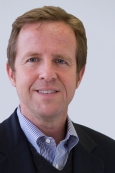Today we are sharing part two of a recent interview that Passion for Preaching (P4P) held with Michael Horton, author of Christless Christianity, which we reviewed here recently. Dr. Horton has some wonderful insights into the world of popular American Evangelicalism.
5. You name the illness of the church moralistic, therapeutic Deism (p. 41). How can the church break free from its captivity to this destructive philosophy?
MH: Actually, I stole it. Well, actually, I quote sociologist Christian Smith, whose book Soul-Searching (Oxford, 2007) summarized several years of research on the spirituality of America’s teens. That was his phrase. Basically, he found that the dominant working theology was (1) moralistic: everybody is born basically good, but we all need instructions for improving our lives. Good people go to heaven; bad people go to hell. There’s no real talk about original sin and salvation by grace. It’s all about how to become better. Then it’s (2) therapeutic, he says, because respondents basically see God as existing for their own personal happiness, self-esteem, and well-being. The question of truth took a back-seat to the therapeutic usefulness of faith, prayer, and spirituality. He said that lots of those he interviewed spoke of their faith as being extremely important to them, but were “stunningly inarticulate” when he asked specific questions about the content of that faith. He said it’s across the board: young people being raised in “Bible-believing,” evangelical churches were just as likely to embrace this moralistic, therapeutic world-view as the unchurched. In fact, he told me privately that he was astonished that the most crucial sources of instruction—parents, pastors, youth leaders, teachers—have evidently failed to do their job.
6. For those who have not read your book, could you briefly explain some of the parallels you find between liberalism and evangelicalism?
MH: Of course, there are many differences. If you ask a lot of evangelicals specific questions that trigger orthodox answers, you’ll hear them. But, again, the question is whether our cultural assumptions drown out whatever (apparently thin) teaching we’re getting when it comes to our working theology. Pietism is really the common ancestor of liberalism and evangelicalism. Not everything in pietism is bad, I would argue, but it ended up shifting the focus from Christ to the believer. “What would Jesus do?” eventually became more important than the question, “What has Jesus done?” Experiencing God in our hearts became increasingly detached from the truths concerning the identity and works of the Triune God in history. H. Richard Niebuhr defined the message of liberalism this way in the 1950s: “A God without wrath brought men without sin into a kingdom without judgment through a Christ without a cross.” Today, it’s called “moralistic, therapeutic deism.” And now it’s not just that “liberal” church down the street.
7. How has Christ become a mascot in the culture wars (p. 206) and how can this be remedied?
MH: We still hear a lot about Jesus Christ today. Presidential candidates gain points by telling us that he has made a difference in their lives. But this easily becomes Christ-as-mascot or Christ-as-trademark, representing a cultural/political demographic. I like democracy. I like America. I’m a fan of family values. However, we need to make it clear to people that Christ did not come into the world and die on a cross to make the world safe for democracy, America, or the family, but to die for sinners and to be raised for their justification. If Christ were to return today and visit America, I think he’d make all of us pretty nervous—on the left, the right, and in the middle.
8. You make the claim that “secularism cannot be blamed on the secularists.” Who then is to blame for secularism and how should the church fight against secularism?
MH: Many of the most vitriolic critics of the church—and religion generally—in America today were raised in conservative churches. For many of them, it was all about “us” and “them.” Sin was reduced to sins—behaviors that they were scolded into avoiding. It’s like “Saturday Night Live’s ‘Church Lady.’” It’s not surprising that “Stuart Smalley” followed, with his line, “I’m good enough, I’m smart enough, and doggone it, people like me.” I think there’s a backlash against a moralistic brand of Christianity, especially its grasps at political power. But I don’t really hear these hardened secularists attacking the doctrines of Christianity, and it makes me wonder if they ever heard them. Biblical Christianity is so much richer and more profound than either of these. The bad news is worse than we thought and the good news is greater than we ever imagined.
9. Who do you think would benefit most from reading Christless Christianity and what is your desired result in the reader who encounters this book?
MH: The law is always a necessary precursor to the gospel. We have to be jolted out of our self-confidence, made aware of the depth of our crisis before God, before we even sense the urgency of fleeing to Christ. This book has a lot of “bad news” in it, but only in the interest of recalling us—myself included—to the good news Although my follow-up (due out this fall) focuses on the gospel, I hope that there’s a lot of it already in this one.
Michael Horton Interview Part 1


